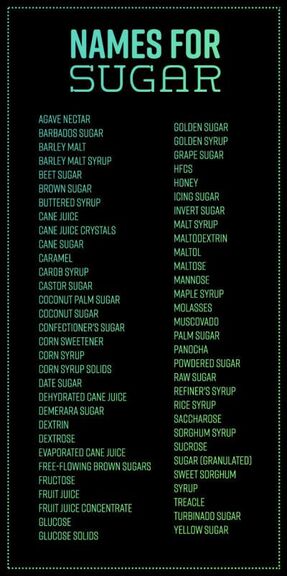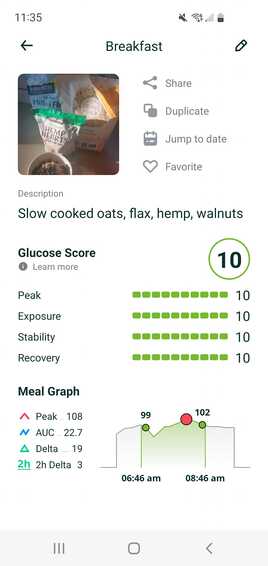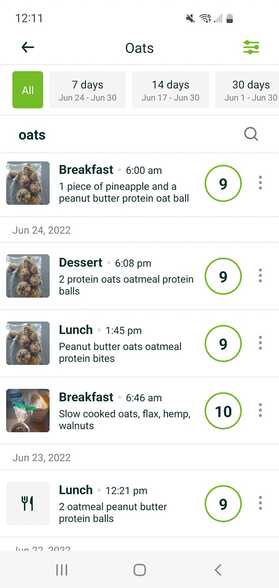
www.centrastate.com/blog/sugar-can-wreak-havoc-on-your-cholesterol-levels/
My motivation to invest in a CGM was not solely to monitor the spikes and dips of my blood sugar levels. The more I learn about metabolic issues, the more aware I become that our body does not function within a silo or vacuum. Often a cluster of conditions occur together like high blood sugar, abnormal cholesterol levels, high triglycerides, excess body fat, being overweight or obese which compromise one's health. It is not unusual to correct one area, for instance, lose 20 pounds and see benefit in multiple areas like blood pressure, blood sugar, and cholesterol. Just as elevated blood sugar can negatively affect the liver, kidneys, and vascular system, it should be no surprise that correcting one area, like blood sugar, may provide positive effects to more than one system, organ, or symptom. I found this article by a Georgetown MD, internal medicine doctor and lipidologist to be simple and straight-forward. The link above will take you to the full blog-post but here is an excerpt:
"It is a well-known fact that the war is on against sugar. Many people don’t realize that sugar and other carbohydrate consumption can also contribute to cholesterol problems. In fact, sugar ─ in the form of table sugar (sucrose) or high-fructose corn syrup ─ can be a greater contributor to heart disease than the consumption of saturated fat, long regarded as the main contributor to this condition.
Most Americans consume far too much sugar on a daily basis. Why? There are a multitude of reasons. For example, many of us are unaware that processed foods are loaded with hidden sugars to enhance flavor. In addition to all the fructose added, Americans consume an average of 22 teaspoons of sugar a day and even more from carbohydrates (which the body breaks down into sugar) from pasta, rice, bread, corn and potatoes.
For the last 30 years, our dietary focus has been to reduce fats in our diets. As a result, there has been an increase in carbohydrate consumption resulting in an epidemic of pre-diabetes and diabetes along with a new type of cholesterol problem.
My motivation to invest in a CGM was not solely to monitor the spikes and dips of my blood sugar levels. The more I learn about metabolic issues, the more aware I become that our body does not function within a silo or vacuum. Often a cluster of conditions occur together like high blood sugar, abnormal cholesterol levels, high triglycerides, excess body fat, being overweight or obese which compromise one's health. It is not unusual to correct one area, for instance, lose 20 pounds and see benefit in multiple areas like blood pressure, blood sugar, and cholesterol. Just as elevated blood sugar can negatively affect the liver, kidneys, and vascular system, it should be no surprise that correcting one area, like blood sugar, may provide positive effects to more than one system, organ, or symptom. I found this article by a Georgetown MD, internal medicine doctor and lipidologist to be simple and straight-forward. The link above will take you to the full blog-post but here is an excerpt:
"It is a well-known fact that the war is on against sugar. Many people don’t realize that sugar and other carbohydrate consumption can also contribute to cholesterol problems. In fact, sugar ─ in the form of table sugar (sucrose) or high-fructose corn syrup ─ can be a greater contributor to heart disease than the consumption of saturated fat, long regarded as the main contributor to this condition.
Most Americans consume far too much sugar on a daily basis. Why? There are a multitude of reasons. For example, many of us are unaware that processed foods are loaded with hidden sugars to enhance flavor. In addition to all the fructose added, Americans consume an average of 22 teaspoons of sugar a day and even more from carbohydrates (which the body breaks down into sugar) from pasta, rice, bread, corn and potatoes.
For the last 30 years, our dietary focus has been to reduce fats in our diets. As a result, there has been an increase in carbohydrate consumption resulting in an epidemic of pre-diabetes and diabetes along with a new type of cholesterol problem.
Sugar consumption negatively affects “good and bad” cholesterol
Standard cholesterol measurement reveals your total cholesterol level broken down by LDL (bad cholesterol), HDL (good cholesterol) and triglycerides. LDL elevation, which is linked in part to saturated fat intake, is only one type of cholesterol problem. How is sugar a major culprit in cholesterol problems? Eating sugar and other carbohydrates raises triglycerides and lowers HDL. It also causes dysfunctional alterations in LDL molecules. LDL levels may seem normal, but this dysfunctional LDL can cause rapid clogging of arteries and increased risk for thrombosis.
Standard cholesterol measurement reveals your total cholesterol level broken down by LDL (bad cholesterol), HDL (good cholesterol) and triglycerides. LDL elevation, which is linked in part to saturated fat intake, is only one type of cholesterol problem. How is sugar a major culprit in cholesterol problems? Eating sugar and other carbohydrates raises triglycerides and lowers HDL. It also causes dysfunctional alterations in LDL molecules. LDL levels may seem normal, but this dysfunctional LDL can cause rapid clogging of arteries and increased risk for thrombosis.
Reducing sugar intake offers big rewards
Generally speaking, the goal for many people is to reduce daily sugar intake and realize that carbohydrates must also be reduced to impact your cholesterol problems. Avoid high fructose corn syrup. The brain cannot sense this form of sugar like it does regular table sugar and this will cause you to eat more before feeling full. After about five days of living on fewer carbohydrates, my patients report feeling much more energy, less stress and even craving healthier food choices. So give your body a gift that will keep on giving. Dump the sugar and reduce the carbs. Your cholesterol, heart, mind and body will thank you for it."( Spencer Kroll, MD, PhD is a board-certified, Georgetown University-trained physician specializing in internal medicine and a board-certified lipidologists. He is also a fellow of the National Lipid Association.)
Generally speaking, the goal for many people is to reduce daily sugar intake and realize that carbohydrates must also be reduced to impact your cholesterol problems. Avoid high fructose corn syrup. The brain cannot sense this form of sugar like it does regular table sugar and this will cause you to eat more before feeling full. After about five days of living on fewer carbohydrates, my patients report feeling much more energy, less stress and even craving healthier food choices. So give your body a gift that will keep on giving. Dump the sugar and reduce the carbs. Your cholesterol, heart, mind and body will thank you for it."( Spencer Kroll, MD, PhD is a board-certified, Georgetown University-trained physician specializing in internal medicine and a board-certified lipidologists. He is also a fellow of the National Lipid Association.)

From my more personal perpective, I have seen my LDL cholesterol climb from its low of 50 to a high of 94 over the past decade. At the time my LDL was the lowest, I was doing more intense long-distance running. Over the course of 3 years, I ran approximately 6 half-marathons. In addition, I often ate slow-cooked oats, primarily oatmeal with flaxseed, hemp seed, walnuts and blueberries. While both the cardio and oats had benefits, I think the cardio also caused havoc to my thyroid and adrenal glands; essentially chronic running became a chronic stressor to my body. I still love exercise but I am more selective and balanced in my goals and pursuits. In addition, as I cut back on running I also cut back on oatmeal as some of my favorite wellness podcasts and practitioners reported that slow oats spiked their blood sugar sometimes more than candy and processed foods. I also found that overall I felt better on a grain free/gluten free diet. This CGM process has been reassuring as the times I have tracked my body's response to my oatmeal mixture combined with fats and protein, my blood sugar has mildly and normally elevated but I have felt satiated for many hours thus reducing my desire to snack and graze. This is the personal nature of how foods affect one's body. What may be less than ideal for one person might be wholly appreciated and beneficial to another.
As always, I communicated my questions to my NutriSense dietitican for her perspective regarding cholesterol and glucose and per usual her guidance was helpful. In addition, she shared this article from Peter Attia, MD: "If you are wanting a good lay article on this topic, I would highly recommend this one (another Peter Attia resource! ). It is part 9 of a 9 part series, so you could absolutely just read this one in isolation and get most of it, or you could read all 9." And here is another one of Peter Attia with Joe Rogan which I personally love! youtu.be/92kYDVjX0G0

In addition, her explanation of the relationship between glucose and cholesterol was insightful.
My question: Any insight into glucose and LDL cholesterol? I have heard on a few podcasts that LDLb should be more of a concern than LDL. My doctor is good at considering particle size but I have seen my LDL creep up over the years. Ten years ago it was under 50 and now it is closer to 85-90 but my HDL is at a good ratio still so not of major concern. Just curious as to your recommendations/insights and how glucose/insulin might affect cholesterol numbers. As a side note, my husband has worked hard to bring down his LDL versus being prescribed a statin. He needs to go in for a blood draw and confirm that his 20# weight loss, increased exercise, and improved diet has done the trick. It worked for him 10 years ago but over the past few years he let the weight creep back. Anyhow, thanks for your thoughts!
And response: As I'm sure you know, keeping your blood sugars well controlled can beneficially impact our cholesterol levels too! So let's just talk through this cascade: when blood sugar levels go up, the body responds by releasing insulin, but it doesn’t just cause sugar to be stored, it shifts our bodies into storage mode in general. And what’s the storage form of cholesterol? LDL. So if insulin levels go up, LDL also goes up. And what’s the non-storage form of cholesterol? HDL, the good cholesterol! So if insulin levels go up, HDL goes down. And lastly, what if you’ve stored all the sugar you can and there’s still excess circulating in your blood stream? Insulin helps turn that sugar into fat. The result? Triglyceride levels go up. So given your current glucose values, cholesterol panel, and not to mention your high activity levels, I'm not seeing that your glucose levels are having a negative effect on your cholesterol panel!
I am more than half-way through my 1-month CGM discovery session! I definitely recommend the process for anyone who desires greater knowledge as to how their body functions, reacts, and develops. My goal is to apply an ounce of prevention to reduce the need for a pound of cure! There is a rental fee so to speak for the CGM but it is a lot less expensive that the toll of diabetes on one's body. It's an investment in the one vehicle you have for life. Keep it running as optimally as possible. Enjoy the day and thank you for reading.
Disclaimer: As always, this information is solely my opinion and not intended as medical advice. I am a mom, not a doctor. Always consult with your health care providers with your own health care needs. Thank you!
My question: Any insight into glucose and LDL cholesterol? I have heard on a few podcasts that LDLb should be more of a concern than LDL. My doctor is good at considering particle size but I have seen my LDL creep up over the years. Ten years ago it was under 50 and now it is closer to 85-90 but my HDL is at a good ratio still so not of major concern. Just curious as to your recommendations/insights and how glucose/insulin might affect cholesterol numbers. As a side note, my husband has worked hard to bring down his LDL versus being prescribed a statin. He needs to go in for a blood draw and confirm that his 20# weight loss, increased exercise, and improved diet has done the trick. It worked for him 10 years ago but over the past few years he let the weight creep back. Anyhow, thanks for your thoughts!
And response: As I'm sure you know, keeping your blood sugars well controlled can beneficially impact our cholesterol levels too! So let's just talk through this cascade: when blood sugar levels go up, the body responds by releasing insulin, but it doesn’t just cause sugar to be stored, it shifts our bodies into storage mode in general. And what’s the storage form of cholesterol? LDL. So if insulin levels go up, LDL also goes up. And what’s the non-storage form of cholesterol? HDL, the good cholesterol! So if insulin levels go up, HDL goes down. And lastly, what if you’ve stored all the sugar you can and there’s still excess circulating in your blood stream? Insulin helps turn that sugar into fat. The result? Triglyceride levels go up. So given your current glucose values, cholesterol panel, and not to mention your high activity levels, I'm not seeing that your glucose levels are having a negative effect on your cholesterol panel!
I am more than half-way through my 1-month CGM discovery session! I definitely recommend the process for anyone who desires greater knowledge as to how their body functions, reacts, and develops. My goal is to apply an ounce of prevention to reduce the need for a pound of cure! There is a rental fee so to speak for the CGM but it is a lot less expensive that the toll of diabetes on one's body. It's an investment in the one vehicle you have for life. Keep it running as optimally as possible. Enjoy the day and thank you for reading.
Disclaimer: As always, this information is solely my opinion and not intended as medical advice. I am a mom, not a doctor. Always consult with your health care providers with your own health care needs. Thank you!

P.S. One other great feature of the NutriSense CGM is the ability to perform experiments. It can group all foods/meals that contain the word "oats" or "oatmeal" to reflect my response collectively to the food. Generally speaking we want the food to rate as an 8, 9 or 10 wth regard to its glucose score.
 RSS Feed
RSS Feed